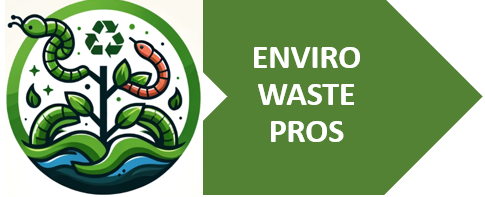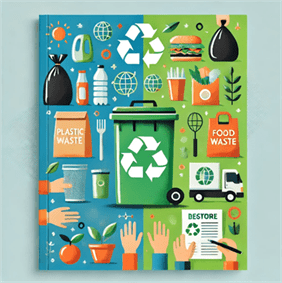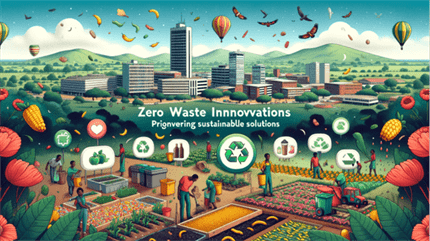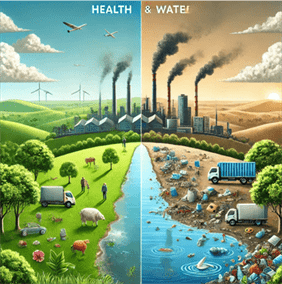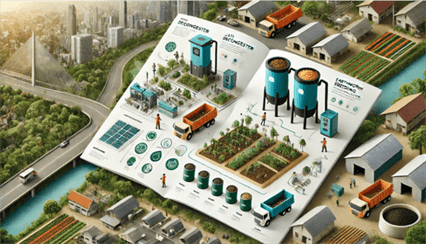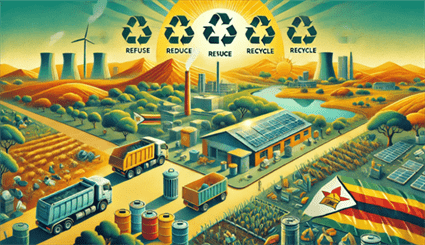General Waste Management Practices
1. Introduction
Waste management encompasses the processes and actions required to manage waste from its inception to its final disposal. This includes the collection, transportation, treatment, and disposal of waste, along with monitoring and regulation. Effective waste management practices are crucial for maintaining a clean and sustainable environment, protecting public health, and conserving resources.
2. Types of Waste and Waste Collection
Municipal Solid Waste
Municipal solid waste (MSW) refers to the everyday items discarded by the public, including household waste, packaging, food scraps, and yard waste. It is generated in residential, commercial, and institutional areas and is collected by municipal authorities.
Waste Collection Methods
Waste collection is the first step in the waste management process. Methods vary depending on the type of waste and local regulations, but common practices include:
- Curbside Collection: Residents place waste bins at the curb for regular collection by waste trucks.
- Drop-off Centers: Individuals transport their waste to designated centers.
- Community Collection Points: Centralized locations where residents can deposit waste.
3. Waste Minimization Strategies
Waste Minimisation Techniques
Waste minimisation involves reducing the amount of waste generated and includes practices such as:
- Source Reduction: Designing products and packaging to reduce waste.
- Reuse: Finding new uses for items instead of discarding them.
- Recycling: Processing materials to create new products.
Importance and Benefits
Minimizing waste reduces the burden on waste management systems, lowers disposal costs, conserves natural resources, and reduces pollution. It also promotes sustainable practices and contributes to a circular economy.
4. Recycling and Reuse
Recycling Processes and Benefits
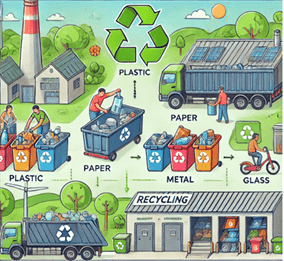
Recycling involves collecting and processing materials that would otherwise be discarded and turning them into new products. Commonly recycled materials include paper, glass, metals, and plastics. Benefits of recycling include:
- Resource Conservation: Reduces the need for raw materials.
- Energy Savings: Requires less energy than producing new materials.
- Pollution Reduction: Decreases greenhouse gas emissions and water pollutants.
Reuse Strategies
Reuse extends the life of products and materials by finding new ways to use them. Strategies include:
- Repair and Refurbishment: Fixing broken items for continued use.
- Repurposing: Adapting items for different uses.
- Donations: Giving items to others who can use them.
5. Composting and Organic Waste Management
Composting Methods
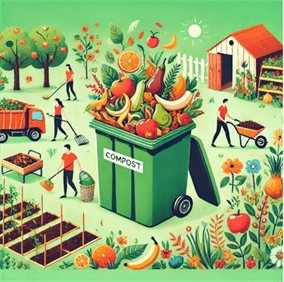
Composting is the natural process of recycling organic matter, such as leaves and food scraps, into a valuable fertilizer. Methods include:
- Backyard Composting: Individuals create compost piles or bins in their yards.
- Vermicomposting: Using worms to break down organic waste.
- Commercial Composting: Large-scale operations process organic waste from municipalities and businesses.
Benefits of Composting
Composting reduces the amount of organic waste sent to landfills and incinerators, lowers greenhouse gas emissions, and produces a nutrient-rich soil amendment that can improve soil health and reduce the need for chemical fertilizers.
6. Incineration and Landfills
Incineration Processes
Incineration involves burning waste at high temperatures to reduce its volume and generate energy. While it can decrease the amount of waste in landfills and produce energy, it also has drawbacks, such as air pollution and the generation of ash that requires disposal.
Landfill Management and Challenges
Landfills are sites where waste is buried. Proper landfill management includes measures to protect the environment and human health, such as:
- Liner Systems: Preventing leachate from contaminating groundwater.
- Gas Collection: Capturing methane gas for energy production.
- Monitoring: Regularly checking for environmental impacts.
However, landfills have limited capacity, and finding new sites can be challenging. They can also produce greenhouse gases and leachate, posing environmental risks.
7. Conclusion
Effective waste management practices are essential for protecting the environment, conserving resources, and ensuring public health. By implementing waste minimization techniques, promoting recycling and reuse, and managing organic waste through composting, communities can reduce their environmental footprint.
While incineration and landfills will continue to play roles in waste disposal, advancements in technology and policy can mitigate their impacts. Looking forward, continued innovation and commitment to sustainable practices are vital for improving waste management and achieving a cleaner, healthier future.
